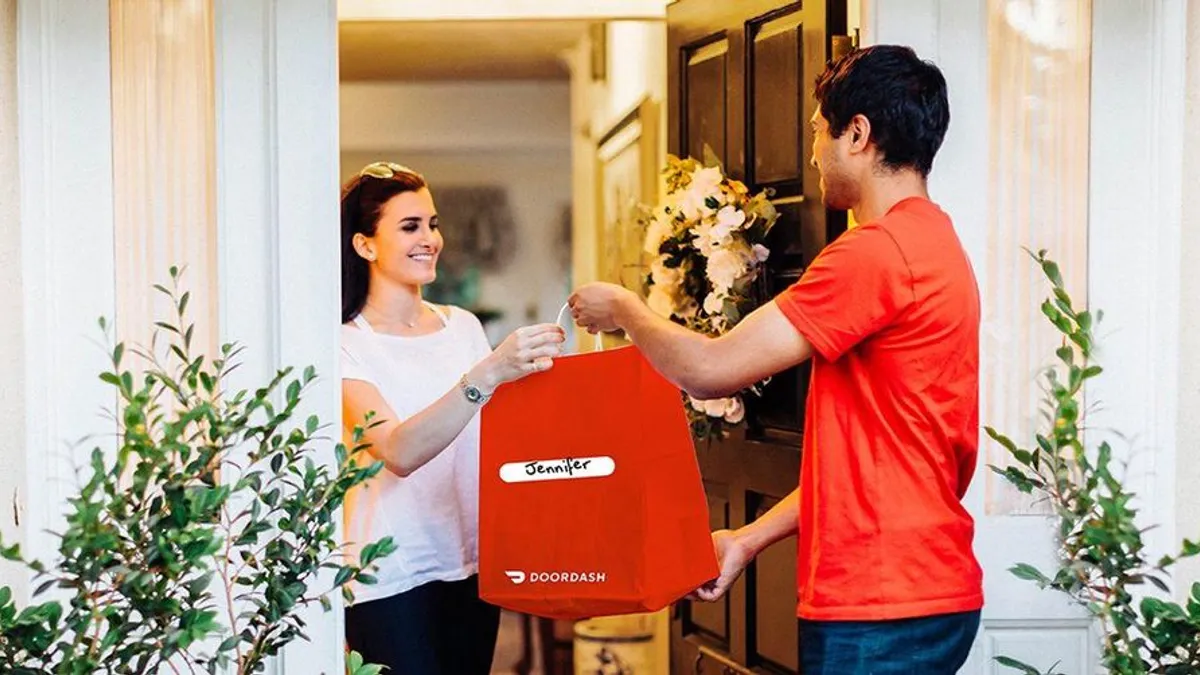Dive Brief:
- In a departure from its hallmark staffing setup, DoorDash will hire employees to do delivery work, the company announced Dec. 6.
- DoorDash is expanding its staffing model to pursue "ultra-fast delivery times" that require more structure and organization, the company said. The employees will fulfill on-demand DashMart deliveries, ferrying household items from stores to customers.
- Employees will be paid a starting wage of $15 per hour plus tips, DoorDash said. Qualifying workers will receive benefits including medical, dental and vision. They'll also get access to employee assistance programs, flexible spending accounts and commuter benefits.
Dive Insight:
The work DoorDash's delivery employees will do is "fundamentally different from dashing," the company said. "It requires individuals looking for a different type of work."
The employees, who will be hired by a DoorDash company called DashCorps, will complete deliveries, but they'll also spend time shelf-stocking, supporting customers and carrying out administrative work. Their work arrangement will mirror that of a traditional employee: "They'll work set schedules, working an average of around 20 hours per week, with many working full-time; wear uniforms; report to a manager; and use a new app designed specifically for their unique work."
DoorDash praised its new offering, commending its reliability, consistency and structure. But it defended its original staffing model: "...those who work as independent contractor Dashers on the DoorDash platform overwhelmingly value the flexibility to design their own schedule, enabling them to earn when, where, and for however long they want," the company said. "This flexibility is why 90% of Dashers nationwide say they want to remain independent contractors, and we're steadfastly committed to protecting and strengthening this independent work."
DoorDash is one of several companies fighting a battle over gig work in California. DoorDash, Uber, Postmates, Instacart and Lyft poured some $200 million into supporting Proposition 22 — a law that classifies drivers for delivery and rideshare companies as independent contractors, not employees. Prop 22 originally passed in November 2020, granting such companies a workaround to AB-5, a law that required employers to reclassify gig workers as employees. But a California judge overturned the proposition in August, ruling it unconstitutional.













